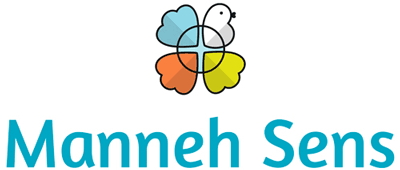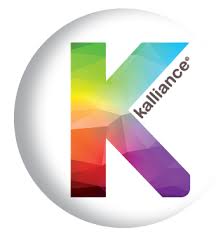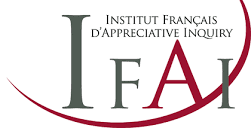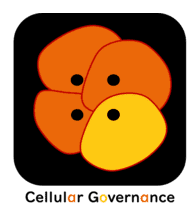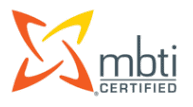My methods and teaching tools
Tools and methods to support you…
The mentorship I offer is unique and customised depending on your personality, the system in which you are evolving professionally, and the context of your search.
Offering my services as a coach means applying my practical experience and coaching tools to serve your needs.
Together, we will move forward to overcome your challenges and achieve your goals!
Hidden 1st items (to keep the others closed)
Your content goes here. Edit or remove this text inline or in the module Content settings. You can also style every aspect of this content in the module Design settings and even apply custom CSS to this text in the module Advanced settings.
Kalliance© - Cooperation Game
This tool in the form of a serious game was created by a group of coaches (which I founded) to satisfy the needs for well-being and efficiency in a team.
So why should you play?
Today, companies need to count on thier human potential in order to have a long-term strategic vision.
In an increasingly complex environment, teams from all fields are undergoing frequent transformations.
Often we notice a loss of orientation and less pleasure in working together.
The game is simultaneously a playful and a serious invitation to face reality , while allowing spontaneity and fun.
It offers a space of freedom and cooperation which can be applied in everyday life.
To improve performance, Kalliance©Game is the ideal tool for team coaching. This game has been conceived to quickly identify the level of a team’s development. It helps to clarify how the team is functioning in the five main areas of management: Leadership, Vision, Cooperation, Communication, and Quality of Work Life.
It allows you to define paths of improvement towards higher performance through a short-term action plan.
What will Kalliance©Game bring to your team?
- An awareness of the relationships between team members.
- An indicator of the team’s performance level.
- A clear vision of the paths of improvement for higher performance.
- Clarification on the following topics, which are the DNA of all companies:
Vision, Leadership, Communication, Cooperation, Quality of Work Life.
Through the experience of the Kalliance management game, the team will have a unique, fun, and constructive experience. This playful form of team building is a method of connecting and uniting the team members…
« I mastered the application of the Kalliance cooperation game
through my involvement in the development, design, and creation
of the Kalliance team diagnostic tool. »
Transactional Analysis
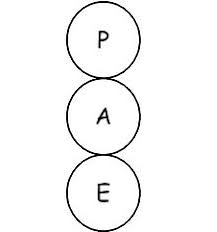
Transctional analysis is a systemic approach that considers the individual and the group in their respective context.
This approach allows us to:
- understand the system and its inner workings
- implement change step by step
- know the three ways to be ourself in communication
- learn the art of communication
- explore our life position and get through conflict
- find the options which are most efficient, most compatible with a complex system of stakes and constraints
If you would like to:
- Become aware of how you work and how you can adapt it for others
- Learn how others have big potential and help them to evolve
- Know how to give and receive positive strokes
- Accept others through connection, without judging them
- Make the most of differences
- Experience empathy
- Find value and trust in life
The Human Element
Founded by Will Schutz, the Human Element®, the Human Element is a human development approach for individuals, teams, and organisations.
It aims to maximise individual human potential and team potential, by developing self-knowledge in each person.
Self-esteem and efficiency
In his book published in 1994, ‘The Human Element: Productivity, Self-Esteem, and the Bottom Line’, the author shows us that the levels of openness, humanity, and trust between individuals influences both mental and physical health in a workplace as much as the level of productivity.
Interpersonal needs
The approach is based on the necessity to establish and maintain a satisfying relationship between an individual and their social environment.
The three dimensions:
The founder of The Human Element Will Schutz identified three dimensions of behaviour:
- Inclusion- Inclusive behaviours are behaviours that provide an individual with the amount of social interaction they wish for.
- Control- Controlling behaviours are behaviours that help an individual have the impact they wish for.
- Openness- The capacity of a person to express themself with authenticity and depth. 'Sometimes I am open with others: I say what I think and feel to the people concerned. The synonyms for being open are being sincere, authentic, and truthful.’
‘I have understood the principles of The Human Element thanks to my participation in the level 1 seminar held by Anne Monique Sellès and Flavienne Sapaly in 2009.’
Non-Violent Communication (NVC)
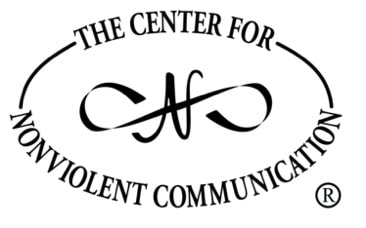
Non-Violent Communication (NVC) is a method of communication conceived and developed by Marshall Rosenberg.
It is a way of being in connection. Non-Violent Communication helps us to communicate, cooperate and resolve conflicts more easily. This method gives concrete and profound ways to find a better way of being oneself. It helps us to identify our needs, using language that supports and fosters the impulse of the heart, rather than using words that contribute to unhappiness.
The principle of NVC is to learn to manage our emotions and control our reactions, so we can take a step back when neccesary. This communication method invites us to adopt a constructive and positive attitude, to work for the resolution of our problems, and to help the team to advance.
- improving relationships
- fostering respect for oneself and others with an objective of sustainable cooperation
- establishing stable relationships between collaborators.
‘I am trained in the approach of Non-Violent Communication thanks to my participation in multiple seminars in Palestine-Israël held by international teachers who followed Marshall Rosenberg, the creator of NVC.’
Appreciative Inquiry
A new and innovative method of collective coaching and change management.
Set up in the United-States, the method offers an orientation of our intelligence towards the sources avaliable to individuals and groups.
This positive approach to change is based on the organisation’s sucessful experiences, solutions, assets, and positive energies.
Exploring together the mysteries of group sucess helps create the conditions for:
- Preparing an exciting future
- Taking binding decisions
- Acting to achieve the desired results
Examples of uses of this approach:
- Organisational diagnostics
- Team building
- Innovation for a better organisation
‘I invite you to discover this process through your participation in the collective coaching mission. I know these foundational principles thanks to the training I followed with IFAI.’
Participatory Governance
This approach helps to explore another way of working, of coming together and making decisions collectively.
It is a continuous practice that proposes a progressive and evolutive framework to establish an efficient work environment, while taking care of people.
It is a method to co-construct a diagnostic and then decide on concrete actions.
What is management by consent?
The group will explore/ live all the phases of management by consent according to a simple process:
- Asking questions and addressing a problem together
- Clarify so that each person has the same level of information
- Listen to each other
- Do a reaction circle
- See if a proposition emerges
- Verify if there are strong objections
- Go towards an agreement
More free information on Cellular Governance
MBTI© Personality Types
This tool highlights the working style and priorities in a professional context.
MBTI® provides an interpretative report describing the way in which the MBTI type of an individual can be expressed in a professional environment. It defines the relevent strengths and areas for development of the employee in regards to your organisation.
This report also includes sections relative to the styles of communication and problem resolution, as well as personalised suggestions in terms of development..
The MBTI interpretative report includes:
- Implications of the working style and preferences of an individual in a professional context
- Preferred communication styles
- The best approach for resolving problems
MBTI terms of use:
- Improve communication
- Develop leadership
- Improve problem resolution
‘I mastered the foundational principles of the personality type tool thanks to the certification levels one and two which I completed in New York in 2011. This gives me access to the interpretative reports in English and in French.’
